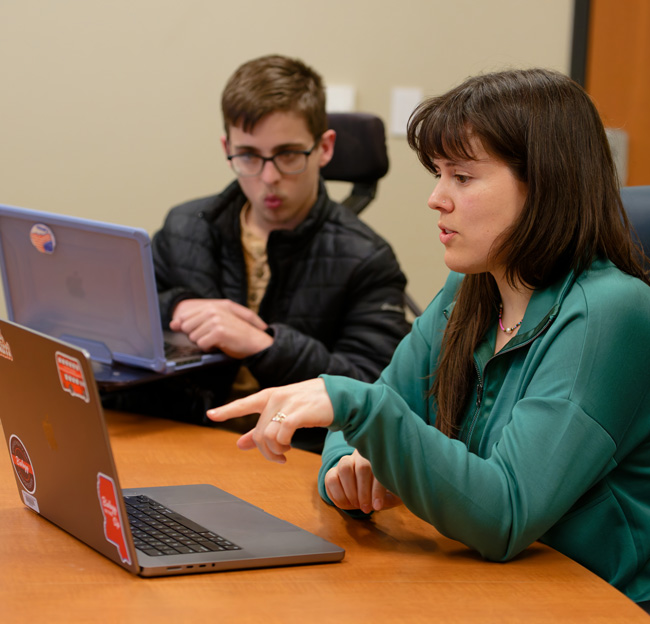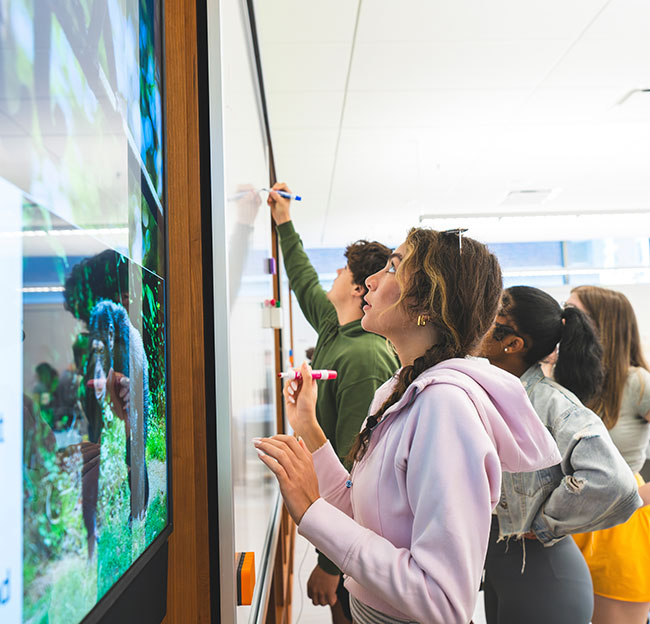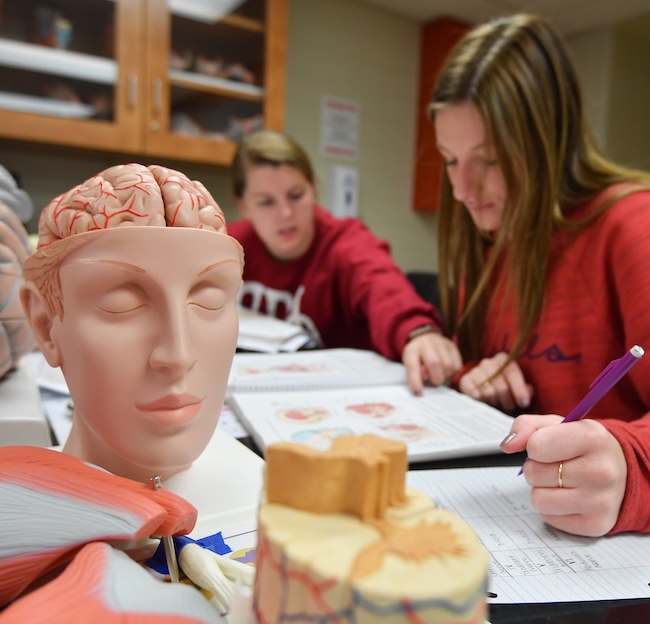Biology/Science Pedagogy
Biology education research encompasses studies that aim to develop new and effective teaching techniques for students.

Distinguished Faculty Shaping Biology Education Research
The field of biology education research uses interdisciplinary knowledge and methods to enhance teaching and learning in university science, technology, engineering, and mathematics (STEM) programs. Biology education research aims to develop new and effective teaching techniques for students in both undergraduate and graduate STEM programs, as well as methods to support students in staying in STEM majors and advancing in their careers. Biology education researchers may also work to promote faculty development in teaching and mentoring through research and education.
Faculty Members Who Specialize in Biology Education Research | ||
|---|---|---|
| Faculty Member | Ph.D. Degree | Research Interests |
| Carol Britson | University of Memphis | Identification and implementation of variables associated with academic performance in Human Anatomy and Physiology students. Recent research projects have examined the key word effect on exam performance, test anxiety, fixed vs growth mindsets, intrinsic vs extrinsic motivation, game-based learning, and spatial ability. |
| Sharday Ewell | University of Alabama at Birmingham | Classroom and social influences that shape student learning and STEM equity; course design to minimize student barriers to success, improve academic outcomes, and encourage STEM persistence. |
| Tamar Goulet | Buffalo State College-SUNY | Investigations into ways to improve science general education courses, both in ways to convey science and to increase students' mastering of concepts and content, as well as improve the students’ experiences with, and attitudes towards, science. |
| Nicole Lewis | The University of Mississippi | Increase STEM student learning and equity; design courses to minimize student barriers to success, improve academic outcomes, and encourage STEM persistence. |
| Timothy Menzel | Mississippi State University | Isolating the source of interest in science and elevating that interest from an early age through the college years. |
| Mariel Pfeifer | University of Georgia | Student and instructor agency in undergraduate and graduate STEM education, specializing in the experiences of neurodivergent STEM students and the career development of both students and instructors. |
| Beckie Symula | University of Texas at Austin | Creating institutional methods to evaluate and support faculty interested in employing effective teaching techniques. |
Research and Grants

Collaborative Research and Science Identity
Dr. Mariel Pfeifer’s current research is supported by a grant from NSF entitled “Collaborative Research: Synthesis of the Barriers and Solutions in STEM Postsecondary Settings for Undergraduate Students with Disabilities.” The research in Dr. Pfeiffer’s lab is also supported by an NSF Postdoctoral Fellowship awarded to Dr. Stephanie Berg, whose project is exploring “science identity”-- the ability to recognize oneself and be recognized by others as a scientist -- particularly among disabled students.

The Influence of General Education Life Science Courses (GELS)
Dr. Tamar Goulet's current research is supported by a grant from NSF entitled "Vision and Change in Undergraduate General Education Life Science Courses." The vast majority of undergraduate students do not major in science, and yet science affects multiple aspects of their lives. General Education Life Science (GELS) courses may be the only science college level course that undergraduates take. GELS courses therefore serve a crucial role in science education.

Spatial Ability Tests and Course Performance in Students
Madeline Hinton (BA in Biological Science ’24)
Visuospatial perception processing is our ability to make inferences about what an object might look like from different angles just by looking at one angle of the object or a 2-D representation of it. This is a skill tested on the perceptual ability portion of the Dental Admissions Test and it is crucial for human anatomy and physiology students. Ms. Hinton worked with Dr. Britson, her mentor, on a method to help students study more effectively and help instructors better understand the way their students learn.
